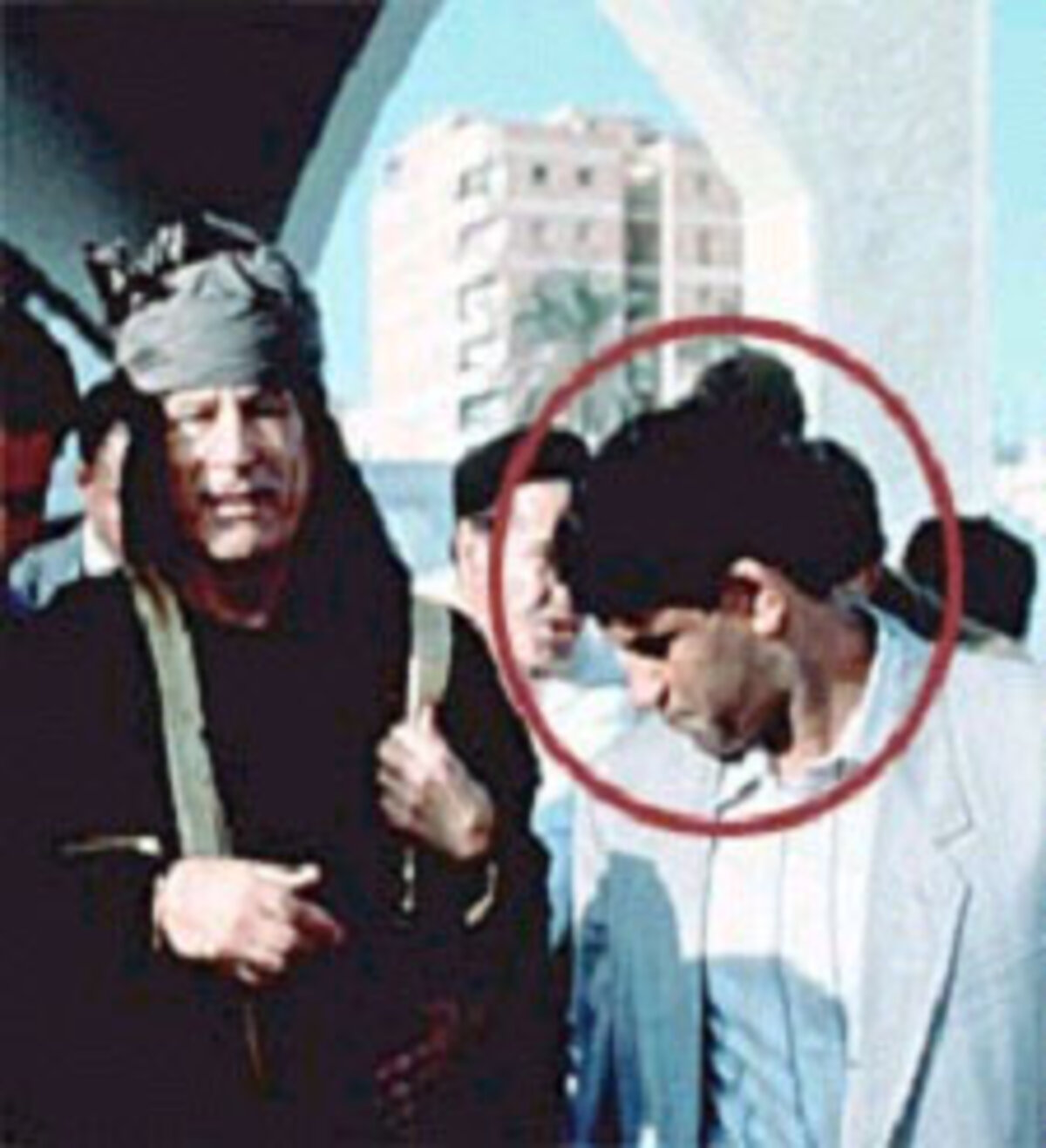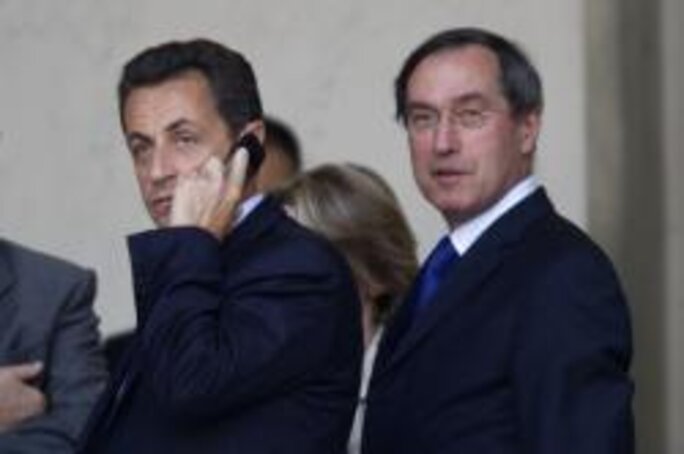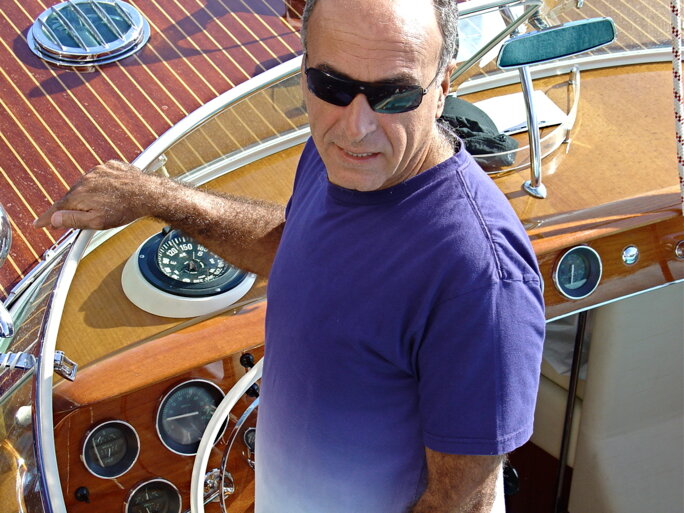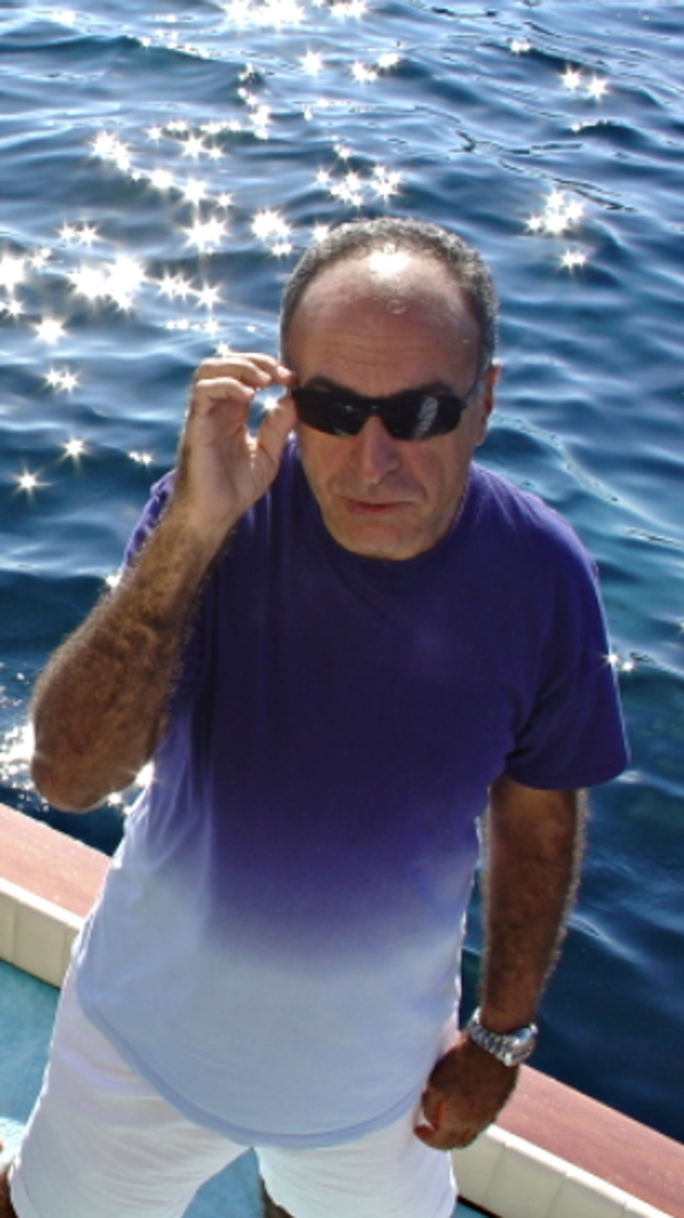Mediapart has obtained documents revealing how French President Nicolas Sarkozy's close entourage, including serving and former ministers, attempted a reconciliation with the outlawed regime of Libyan dictator Muammar Gaddafi which included efforts to sideline an international warrant for the arrest of the colonel's security chief, Abdullah Senussi, sentenced 'in absentia' in France for the bombing of a French airliner in 1989 that left 170 people dead. While the International Criminal Court has now issued arrest warrants for Senussi, Gaddafi and his son, Saif al-Islam, for "murder and crimes against humanity" during the recent upheavals in Libya, Fabrice Arfi and Karl Laske report on the muddied background to NATO's military campaign for democracy in Libya.
-------------------------
In the first four articles in this series of reports about businessman and arms dealer Ziad Takieddine Mediapart exclusively revealed his very close personal links with ranking members of French President Nicolas Sarkozy's immediate entourage, and how Takieddine pays no income nor wealth tax in France, his fiscal domicile and where, according to documents signed by him, his wealth has an estimated value of more than 40 million euros.
Mediapart has further disclosed how in 2003 Takieddine was destined to receive 350 million euros in secret commissions from another arms contract, via a company run by the interior ministry then headed by Nicolas Sarkozy.
Latterly, Mediapart revealed how the arms dealer, while negotiating that contract, was saved by Sarkozy's entourage after an alleged assasination attempt on the exlusive Caribbean island of Mustique. The intermediary was at the time involved in negotiating a lucrative security contract between the French interior ministry - then headed by Sarkozy - and Saudi Arabia .
Now Mediapart has obtained documents revealing how, between 2005 and 2009, Takieddine served as a discreet go-between in Libya for French President Nicolas Sarkozy (1), before and after his election as head of state, and his ministerial and presidential chief-of-staff, Claude Guéant (2). During this honeymoon period between Paris and Tripoli, Takieddine negotiated several arms and oil contracts, transmitted conditions demanded by Colonel Muammar Gaddafi while also, in 2007, establishing the groundwork for the freeing of five Bulgarian nurses held in Libya and the subsequent highly controversial visit of Gaddafi to France in December 2007. That visit provoked an international storm of controversy.
According to documents obtained by Mediapart, French President Nicolas Sarkozy's staff went to strenuous efforts, using Tiakeddine as an intermediary, to satisfy one of the main demands of the Libyan regime. This was to put an end to the judicial consequences of a life imprisonment sentence pronounced by a French court in 1999 against Gaddafi's brother-in-law and security chief Abdullah Senussi, for his part in the 1989 bombing of a French UTA airline DC10 passenger plane over Niger, in which 170 people lost their lives. Following the in absentia sentence, an international arrest warrant was issued against Senussi.

A note by Tiakeddine, marked ‘confidential', refers to a meeting on May 16th 2009 with Claude Guéant, then secretary-general (chief-of-staff) of the French presidency and now French interior minister. The note reports that during the meeting, there was mention of the idea "to ask the public prosecutor to ‘sideline' the arrest warrant" against Senussi.
But well before this, the efforts to drop the procedure against Senussi were kept highly secret from the very beginning. The idea was submitted to Claude Guéant, and became the object of consultations with Thierry Herzog, a lawyer and friend of Nicolas Sarkozy. Initially at stake was the key role Senussi was to play in the French presidency's negotiations to free five Bulgarian nurses and a Palestinian doctor imprisoned in Libya for allegedly conspiring to infect children with the HIV virus. The ultimately successful bid marked the Sarkozy administration's first major diplomatic coup.
In December 2007, Guéant told a panel leading a French parliamentary commission enquiry into the circumstances of the freeing of the medics: "To tell you the whole truth, we had not asked of Mr. Gaddafi for his brother-in-law to come and constitute himself as a prisoner." Speaking under sermon, Sarkozy's chief-of-staff in fact hid the role of Senussi in the process underway of closening ties between France and Libya.

Senussi, married to the sister of Gaddafi's second wife, is infamous in Libya for being the executor of criminal programmes ordered by the dictator - against who France is now at war. Very few photos are available of Senussi and even the year of his birth is uncertain, with reports variously giving this as 1949, 1951 and 1952.
Apart from the 1989 UTA DC10 bombing, Senussi is also believed to be responsible for the 1996 massacre of about 1,200 inmates at the prison of Abu Salim prison, of the killings of 13 anti-Gaddafi demonstrators in Benghazi on February 17th 2006 and the bloody repression of insurgents in the town last winter.
The International Criminal Court earlier this year issued arrest warrants for Senussi, Gaddafi and the dictator's son, Saif al-Islam Gaddafi, for "murder and crimes against humanity" for their roles in the repression of the upheavals in Libya this year. Senussi has become an incarnation of the terror of the Gaddafi regime, against which France has engaged its air force in the ongoing NATO-led airstrikes. However, as detailed in the unfolding story here, Senussi had just earlier been far from a pariah in the eyes of the French presidency.
-------------------------
1:Nicolas Sarkozy was French interior minister, under then-President Jacques Chirac, from May 7th 2002 until March 30th 2004. He became finance minister from March 31st 2004 until November 29th 2004, again under President Chirac. He was re-appointed interior minister, still under the presidency of Jacques Chirac, from June 2nd 2005, until March 26th 2007. Nicolas Sarkozy was elected president of France in 2007 and took up his functions on May 16th 2007.
2: Claude Guéant was principal private secretary to interior minister Nicolas Sarkozy from 2002 to 2004, and occupied the same post when Sarkozy became finance minister between March and November 2004, and again when Sarkozy returned to government as interior minister between June 2005 and March 2007. Guéant became secretary- general of the Elysée Palace, equivalent to chief-of-staff of the French presidency, after Nicolas Sarkozy's election as French President in May, 2007. On February 27th 2011, Guéant was appointed as Minister of the Interior.
'CV for Leader's assent'
In 2005 Ziad Takieddine served as the unofficial representative for Nicolas Sarkozy, then interior minister, for his trip to Libya. Takieddine had already played that role in Saudi Arabia in 2003. He reported on his movements to Claude Guéant as he prepared the ground for Sarkozy's first visit to Tripoli on October 6th 2005.

Enlargement : Illustration 3

According to his personal notes, the Franco-Lebanese businessman had already begun preparing the ground two months before Nicolas Sarkozy's second stint as interior minister (from June 2005 to March 2007). In April 2005, he met in Tripoli with Abdullah Senussi, his son Muhammad, and Gaddafi's son, Saif al-Islam Gaddafi.
In his report on that meeting, Takieddine notes with regard to the 1989 UTA bombing: "AS' [Abdullah Senussi's] personal affair with France, and see how to settle this contentious matter." He mentions a "promise" to that effect that Jacques Chirac, when French President, had made to Gaddafi during an official visit to Libya in 2004. Takieddine writes that he obtained "confirmation by AS" of his "role as special adviser to the Libyan authorities".
In reality, Takieddine appears to have served equally as a special adviser to the French, as illustrated in his note of September 22nd 2005, headed "CG's visit", detailing the preparations for Claude Guéant's trip to Tripoli:
- "Letter (copy) + fax to send to Ministry of Interior concerning CG's visit. (Arrival & departure)"
- "NS' [Editor's note: Nicolas Sarkozy's] books + signature to take with him for the Leader"
- "Gifts valuable books: history/French Revolution etc..."
- "NS' and BH's [Brice Hortefeux's] CV to submit for assent before presenting them to the Leader". Brice Hortefeux is a long-standing friend and political ally of Sarkozy's, who later became interior minister and who is now an advisor to the French president.
The meetings in Tripoli were mapped out by Takieddine from start to finish: "Tête-à-tête with the Leader"; "With the Minister of the Interior: how far?"; "Dinner with No 2 (head of Security and Defence) and Libyan Minister of the Interior - without the ambassador? and ZT [Ziad Takieddine]".
Takieddine planned to discuss with "No 2" "all the derivatives in the area of security, defence and above all border protection provided by the French security team directed by [French defence company] SAGEM" and the question of refitting Mirage and Sukhois (Libyan fighter planes).
After Guéant's visit in late September and Nicolas Sarkozy's in early October 2005, Takieddine sent a letter "to my brother Abdullah Senussi", which Mediapart has translated from the Arabic. It serves first of all to express Nicolas Sarkozy's thanks to "the Leader" for "the warmth of his reception": "The minister wishes to inform you that the new personal relationship with you should be based on total transparency," writes Takieddine.
By pure coincidence, Thierry Herzog, a personal friend Sarkozy's and subsequently his lawyer after the latter became president, was contacted by a Libyan law firm to assess Abdullah Senussi's chances of appealing his conviction in absentia for the 1989 UTA airliner bombing. At a meeting on November 26th 2005, Libyan lawyer Azza Maghur asked his French colleague Thierry Herzog how the amended rules on in absentia trials (under the French ‘Perben II' law of 2004) might change the situation for the six Libyans found guilty and sentenced for the bombing in 1999 - including Senussi.
The possibility of Herzog's travelling to Tripoli, for which "all travel expenses would be covered" by the Libyan regime, is also mentioned in a letter from Azza Maghur to Herzog (see document in English below).
Senussi 'empowered' French lawyer with his case
The case of Abdullah Senussi had been "at the heart of the discussions" during the 2003 negotiations on compensation for the families of the victims of the UTA airliner bombing. "One of Senussi's representatives was present at the negotiating table in the hope that the arrest warrant might be lifted," recalls Guillaume Denoix-de-Saint-Marc, head of an association representing the victims' families and signer of the draft agreement reached in early 2004.
"With a view to leaving Senussi alone, one of the Libyan representatives asked me whether the families would be satisfied if the other five convicted men were to meet with a fatal accident!" revealed Denoix-de-Saint-Marc. "In fact, Senussi was hoping a new trial would be held during which he'd have been represented by a lawyer."

Francis Szpiner, who took part in the talks as the solicitor for SOS-Attentats (an association representing victims of terrorism), a close aide to President Chirac, attests to the Libyan pressure to exonerate Gaddafi's brother-in-law. "The Libyan authorities wanted to settle that case and they were told it could not be settled because the courts were independent," Szpiner told Mediapart. "I said to Mr Senussi: ‘You have the right to a trial and a lawyer, and you will assert your rights.'"
Libya's lawyer in France, François Gibault, was not informed of the legal stratagems being deliberated by the interior minister's entourage. And Thierry Herzog, when contacted by Mediapart, played down his own role in the matter. Personal documents of Ziad Takieddine obtained by Mediapart, however, include reference to a power of attorney dated July 6th 2006 in which Abdullah Senussi empowers Herzog to "take every procedural initiative for the defence" of his interests.
"I did not perform a single act," protested Herzog. "I have never seen that gentleman in my life. And as for the power of attorney, if it was addressed to me, I did not make any use of it." Herzog only remembers having been consulted by a Libyan law firm on "whether we could represent him" and "what the procedure was".
"After 2007, I could not take care of that case," Herzog added. "As I had become counsel to the French President, I could not handle matters between states."
According to his notes, however, Ziad Takieddine continued with his efforts in concert with the French head of state's entourage.
Senussi 'urgent' heath treatment claim
A report "on Abdullah Senussi's situation" dated June 25th 2008 recapitulates his sentencing in absentia by a French criminal court and stresses that "the objective is to get that judgment quashed without his having to come back to France in person".
According to that report, "There are two grounds for appeal: the first is that the criminal court ruling was not notified to Abdullah Senussi; the second is that the ruling was not notified to the Public Prosecutor's Office either, which is the rule when a convicted defendant's address is unknown."
The report goes on to point out that case law would allow an appeal to be filed through a proxy and that a lawyer, Philippe Dehapiot, had been retained to that end.

Contacted by Mediapart, Dehapiot said he was retained in that matter by "a private" individual and whose identity he would not divulge. "The person did not follow up on it," insisted Dehapiot. "There were legal possibilities of contesting the judgment in absentia. It could have been argued that Mr Senussi had been kept in ignorance of the decision to try him in criminal court. The referral order was notified to the Public Prosecutor's Office and not to himself. That could have referred the case back to the examining court."
According to another "confidential note" of Ziad Takieddine's, reporting on a meeting with "CG" (Claude Guéant) on Saturday May 16th 2009, Senussi's backers, buttressed by the legal opinions they had obtained, were actively searching for traces of notification to a foreign public prosecutor's office of the order to refer the case to the criminal court, citing "Thierry Herzog's conclusions".
This fast and effective approach, "after agreement by CG", consisted in "requesting the public prosecutor to put aside the arrest warrant in view of Senussi's state of health, and his need for urgent treatment in France".
Contacted by Mediapart, the Paris public prosecutor at the time, Laurent Le Mesle, said he had no recollection of any intervention by Guéant in this matter. The president's office did not return Mediapart's request for a reaction to the issues raised in this article.
-------------------------
English version: Eric Rosencrantz and Graham Tearse
(Editing by Graham Tearse)


